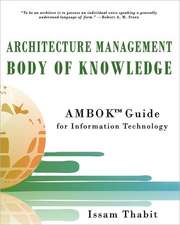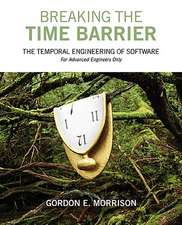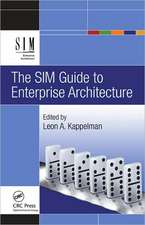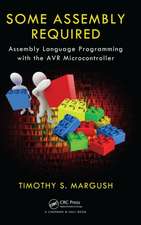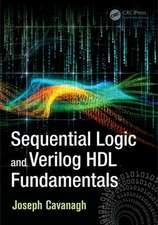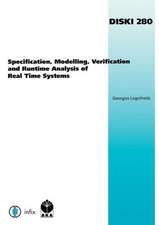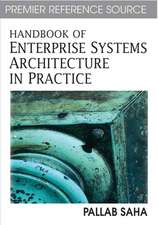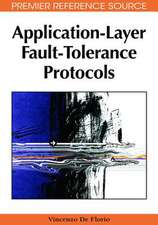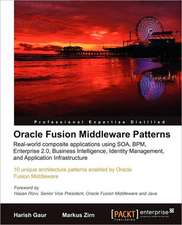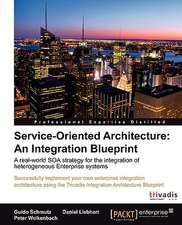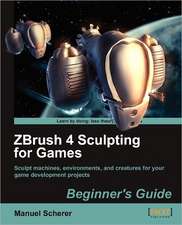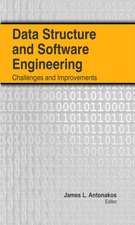X86 Assembly Language and C Fundamentals
Autor Joseph Cavanaghen Limba Engleză Hardback – 22 ian 2013
Learn the X86 Microprocessor Architecture and Commonly Used Instructions
Assembly language programming requires knowledge of number representations, as well as the architecture of the computer on which the language is being used. After covering the binary, octal, decimal, and hexadecimal number systems, the book presents the general architecture of the X86 microprocessor, individual addressing modes, stack operations, procedures, arrays, macros, and input/output operations. It highlights the most commonly used X86 assembly language instructions, including data transfer, branching and looping, logic, shift and rotate, and string instructions, as well as fixed-point, binary-coded decimal (BCD), and floating-point arithmetic instructions.
Get a Solid Foundation in a Language Commonly Used in Digital Hardware
Written for students in computer science and electrical, computer, and software engineering, the book assumes a basic background in C programming, digital logic design, and computer architecture. Designed as a tutorial, this comprehensive and self-contained text offers a solid foundation in assembly language for anyone working with the design of digital hardware.
Preț: 1197.92 lei
Preț vechi: 1497.41 lei
-20% Nou
Puncte Express: 1797
Preț estimativ în valută:
229.23€ • 245.12$ • 191.12£
229.23€ • 245.12$ • 191.12£
Carte tipărită la comandă
Livrare economică 17 aprilie-01 mai
Preluare comenzi: 021 569.72.76
Specificații
ISBN-13: 9781466568242
ISBN-10: 1466568240
Pagini: 814
Ilustrații: 337 black & white illustrations, 100 black & white tables
Dimensiuni: 178 x 254 x 43 mm
Greutate: 1.52 kg
Ediția:1
Editura: CRC Press
Colecția CRC Press
ISBN-10: 1466568240
Pagini: 814
Ilustrații: 337 black & white illustrations, 100 black & white tables
Dimensiuni: 178 x 254 x 43 mm
Greutate: 1.52 kg
Ediția:1
Editura: CRC Press
Colecția CRC Press
Public țintă
Undergraduate students in electrical engineering, computer engineering, computer science, and software engineering; graduate students who require a noncredit course in X86 assembly language to supplement their program of studies.Cuprins
Number Systems and Number Representations. X86 Processor Architecture. Addressing Modes. C Programming Fundamentals. Data Transfer Instructions. Branching and Looping Instructions. Stack Operations. Logic, Bit, Shift, and Rotate Instructions. Fixed-Point Arithmetic Instructions. Binary-Coded Decimal Arithmetic Instructions. Floating-Point Arithmetic Instructions. Procedures. String Instructions. Arrays. Macros. Interrupts and Input/Output Operations. Additional Programming Examples. Appendix A: ASCII Character Codes. Appendix B: Answers to Select Problems. Index.
Notă biografică
Joseph Cavanagh is an adjunct professor in the computer engineering department at Santa Clara University in California. He is the author of several textbooks, including Computer Arithmetic and Verilog HDL Fundamentals (2009), Digital Design and Verilog HDL Fundamentals (2008), Verilog HDL: Digital Design and Modeling (2007), and Sequential Logic: Analysis and Synthesis (2006), as well as a novel, The Computer Conspiracy.
Descriere
Designed as a tutorial, this book explains how to write programs in the X86 language, the C programming language, and the X86 assembly language modules embedded in a C program. It presents the general computer architecture of the X86 microprocessor, individual addressing modes, stack operations, procedures, arrays, macros, and input/output operations. The book also details the most commonly used X86 assembly language instructions. A wealth of program design examples—including the complete assembly language code and actual outputs—help you grasp the concepts more easily.


